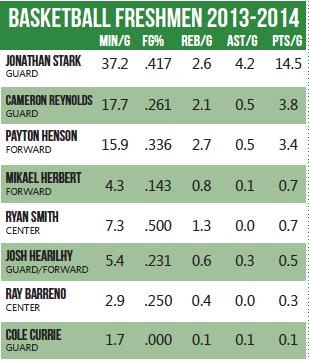No headline provided

June 10, 2014
It is estimated that at some point in their lifetime, one in ten U.S. children between the ages of 4 and 17 will be diagnosed with Attention Deficit Hyperactivity Disorder (ADHD), making it the most common childhood neurobehavioral disorder.[1] Although there is no cure for ADHD, the disorder can be successfully managed through a comprehensive treatment approach including, but not limited to, behavioral therapy, medication, and parent and child education.[2]
Families of children with ADHD may be interested to learn that there is another treatment option for this chronic condition. In mid-January, Quillivant XR™ (methylphenidate hydrochloride) CII, for extended-release oral suspension, became available in pharmacies in the U.S. Quillivant XR is the first and only once daily extended-release liquid medication for the treatment of ADHD. Please see below for Important Safety Information for Quillivant XR, including a warning regarding abuse and dependence.
Though there are many treatment options for ADHD, until Quillivant XR, there was no extended-release once-daily, liquid medication option for the treatment of this challenging condition.
- May help improve attention and behavior in children with ADHD[3]
- Quillivant XR can also be used by adolescents and adults[3]
- Long-acting medicine-works in 45 minutes and keeps working for up to 12 hours after taking[3]
- Once-daily liquid medicine-taken in the morning, with or without food[3]
- Is now available by prescription only in pharmacies in the U.S.
In a clinical study, the efficacy of Quillivant XR was measured using the Swanson, Kotkin, Agler, M-Flynn, and Pelham (SKAMP) Scale-Combined score and found effective at 45 minutes, 2, 4 (primary endpoint), 8, 10 and 12 hours after taking. This study was performed in a laboratory classroom setting. At the end of each week, school teachers and raters used the SKAMP rating scale to evaluate the efficacy of Quillivant XR on changes in attention and behavior in children with ADHD aged 6 to 12 years.[3]
Parents interested in learning more about Quillivant XR can visit www.QuillivantXR.com. This site includes resources, and other key information about the treatment of ADHD for both individuals with ADHD and their caregivers, such as:
- Quick facts and common questions about ADHD
- Information about prescription assistance for eligible individuals
- Doctor discussion guide to assist with communication during visits
To access the full prescribing information and medication guide for Quillivant XR, please visit www.QuillivantXR.com/pi.
INDICATION
Quillivant XR is a central nervous system (CNS) stimulant prescription medicine. Quillivant XR is used for the treatment of Attention Deficit Hyperactivity Disorder (ADHD). Quillivant XR may help increase attention and decrease impulsiveness and hyperactivity in patients with ADHD.
IMPORTANT SAFETY INFORMATION
Quillivant XR is a federally controlled substance (CII) because it can be abused or lead to dependence. Keep Quillivant XR in a safe place to prevent misuse and abuse. Selling or giving away Quillivant XR may harm others and is against the law. Tell your doctor if you or your child have (or have a family history of) ever abused or been dependent on alcohol, prescription medicines, or street drugs.
Quillivant XR should not be taken if you or your child are allergic to methylphenidate hydrochloride, or any of the ingredients in Quillivant XR, or are taking or have taken within the past 14 days an antidepression medicine called a monoamine oxidase inhibitor or MAOI.
Heart-related problems have been reported with methylphenidate hydrochloride and other stimulant medications:
- Sudden death in patients who have heart problems or heart defects
- Stroke and heart attack in adults
- Increased blood pressure and heart rate
Your doctor should check your or your child’s blood pressure and heart rate regularly during treatment with Quillivant XR.
Mental (psychiatric) problems can be caused or worsened by methylphenidate hydrochloride and other stimulant medications:
- New or worse behavior or thought problems
- New or worsening bipolar symptoms
- New or worsening psychotic symptoms (such as hearing voices, believing things that are not true, are suspicious)
Call your doctor right away if you or your child have any heart-related symptoms such as chest pain, shortness of breath or fainting or new or worsening mental (psychiatric) symptoms or new manic symptoms while taking Quillivant XR.
Quillivant XR may not be right for you. Tell your doctor if:
- You or your child have heart problems, heart defects, or high blood pressure
- You or your child have mental problems including psychosis (hearing voices, believing things that are not true, are suspicious), mania, bipolar illness, or depression or about a family history of suicide, bipolar illness or depression
- You are pregnant or plan to become pregnant. It is not known if Quillivant XR will harm your unborn baby. Talk to your doctor if you are pregnant or plan to become pregnant
- You are breastfeeding or plan to breast feed. Quillivant XR passes into your breast milk. You and your doctor should decide if you will take Quillivant XR or breast feed
Possible serious side effects of Quillivant XR™ (methylphenidate HCl), CII are heart-related problems and mental problems, as well as slowing of growth (height and weight) in children. Children should have their height and weight checked often while taking Quillivant XR. Quillivant XR treatment may be stopped if a problem is found during these check-ups.
Common side effects include:
- Decreased appetite
- Weight loss
- Nausea
- Stomach pain
- Dry mouth
- Vomiting
- Trouble sleeping
- Anxiety
- Nervousness
- Restlessness
- Mood swings
- Agitation
- Irritability
- Dizziness
- Shaking (tremor)
- Blurred vision
- Increased blood pressure
- Fast heart beat
- Increased sweating
- Fever
Talk to your doctor if you or your child have side effects that are bothersome or do not go away.
This is not a complete list of possible side effects. Ask your doctor or pharmacist for more information.
You are encouraged to report negative side effects of prescription drugs to the FDA. Visit www.fda.gov/medwatch, or call 1-800-FDA-1088.
[1] Centers for Disease Control and Prevention. Increasing prevalence of parent-reported attention deficit/hyperactivity disorder among children – United States, 2003 and 2007. MMWR. 2010;59(44):1439-1443. [2] Pliszka S, Bernet W, Bukstein O, et al. Practice parameter for the assessment and treatment of children and adolescents with Attention-Deficit/Hyperactivity Disorder. J. Am. Acad. Child Adolesc. Psychiatry. 2007;46(7):894-921. [3] Pfizer. QuillivantXRTM full prescribing information. 2012.
“









Leave a Comment